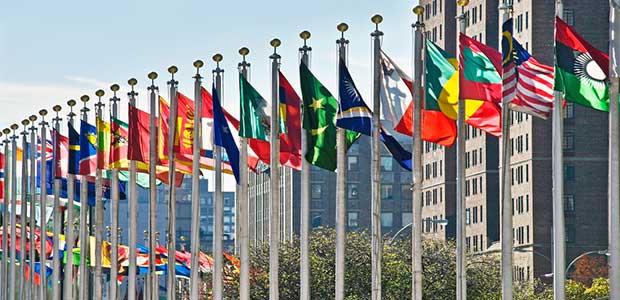
What to Expect this Week at the U.N. Climate Summit
This week, the United Nations headquarters in New York will host the annual United Nations General Assembly (UNGA). The 2019 priority is one that is not unfamiliar: the world’s climate emergency.
All this week, the 74th annual of UNGA will address a number of global issues in a kind of “diplomatic speed dating” format. While leaders around the world will congregate to discuss multiple topics, the U.N. has arranged a special Climate Action summit for today, Monday, September 23.
With a little bit of an unconventional twist, country leaders were told by U.N. Secretary-General Antonio Guterres to not come to the podium Monday without “concrete and transformative plans” to halt rising global temperatures, achieve carbon neutrality, and cut carbon emissions by 45 percent. The time frame for each country? Three whole minutes.
Why does the topic of climate change need its own summit during the UNGA anyways? The fact of the matter is: there is no U.N. global climate army. No team of leaders who can devote themselves to ensuring each country is achieving sustainable goals or working to stop climate change. This means it is up to the 193 nations of the U.N. to take action. What the U.N. will do as a collective is somewhat more removed and—some might argue—ineffective: collect speeches and other environmental brainstorms in a report. It is unclear how concrete the results of the Climate Summit will actually be.
The Climate Summit does not require attendance from every country. In fact, some countries have made the summit a top priority while others—like Trump from the U.S.—have not. German Chancellor Angela Merkel will be in town for the Climate Summit alone. U.S. President Donald Trump will be in town, but he is skipping the climate summit and instead hosting a session in religious persecution next door. Trump has previously avoided international meetings on climate.
The UNGA will host many other debates and discussions throughout the week, and Tuesday, September 24 will be the day of the so-called “general debate.” Leaders from countries like Brazil and the United States will give speeches. It is expected, however, that even these “general debate” speeches will address climate change and environmental concerns. Brazil’s burning Amazon rainforest and pro-business president Jair Bolsonaro has promised a “speech that is different from those that came before.”
Other global leaders are set to attend the UNGA. For example, 91 heads of state have committed, including French President Macron, the UK’s Boris Johnson, Indian leader Narendra Modi, Pakistan’s leader Imran Khan, and Ukranian President Volodymyr Zelensky. While the U.N. is meant to be a neutral ground for dueling sides to have a dialogue, each year sees tensions, a “war of words,” and unspoken hostility among leaders on various topics. Read the CNN’s article on a number of other topics the UNGA is expected to address.
To put the expected discussions into perspective, consider this: 630 meetings have been requested. The UN defines a meeting as a gathering of 15 or more people held within the UN for a maximum of three hours.
Among those not attending are notable world leaders like Russian President Vladimir Putin, Chinese leader Xi Jinping, and Israeli Prime Minister Benjamin Netanayhu.
While New Yorkers will deal with an increase in traffic and security blockades, world leaders within UN walls will go head-to-head under “peaceful” terms to discuss many topics, including our environment.